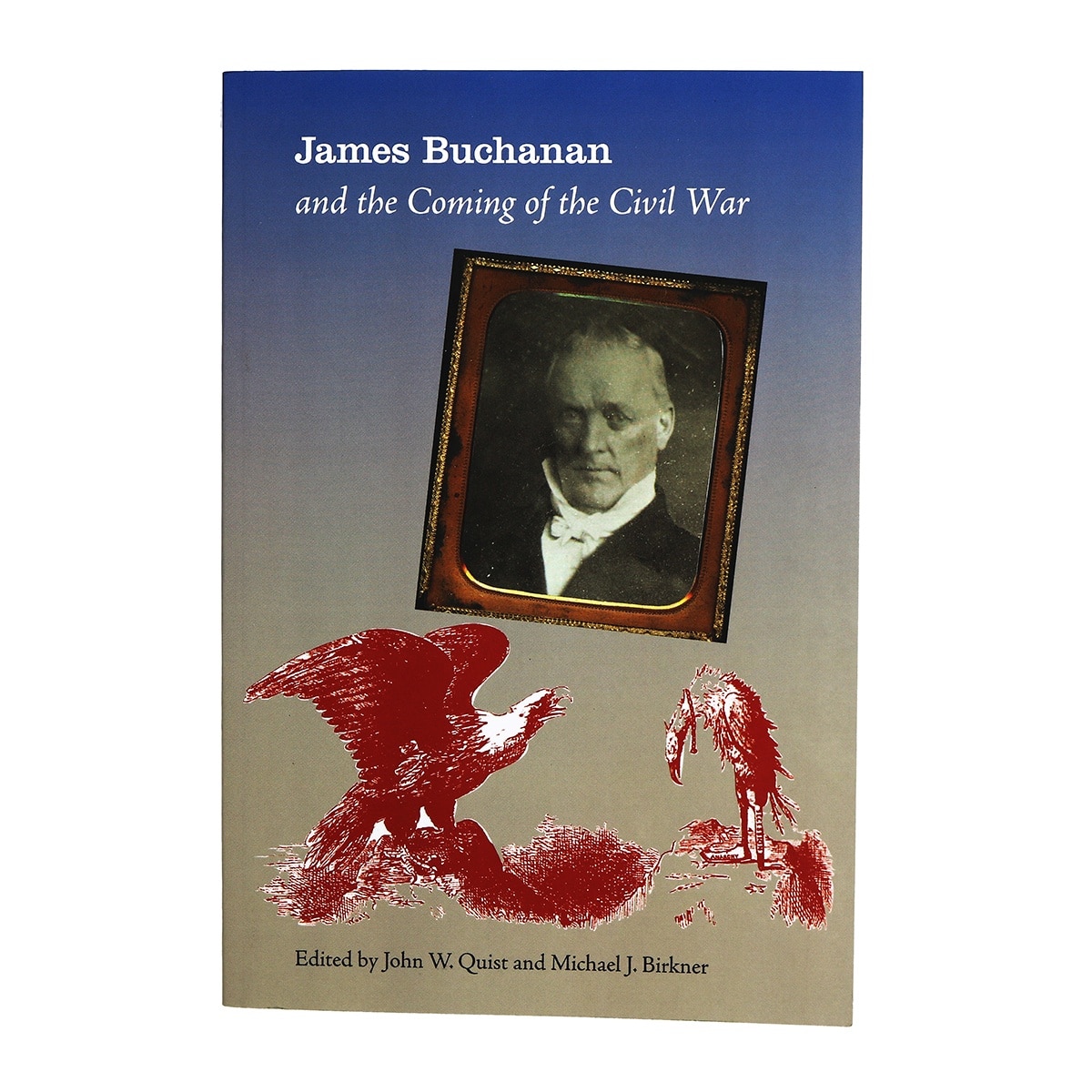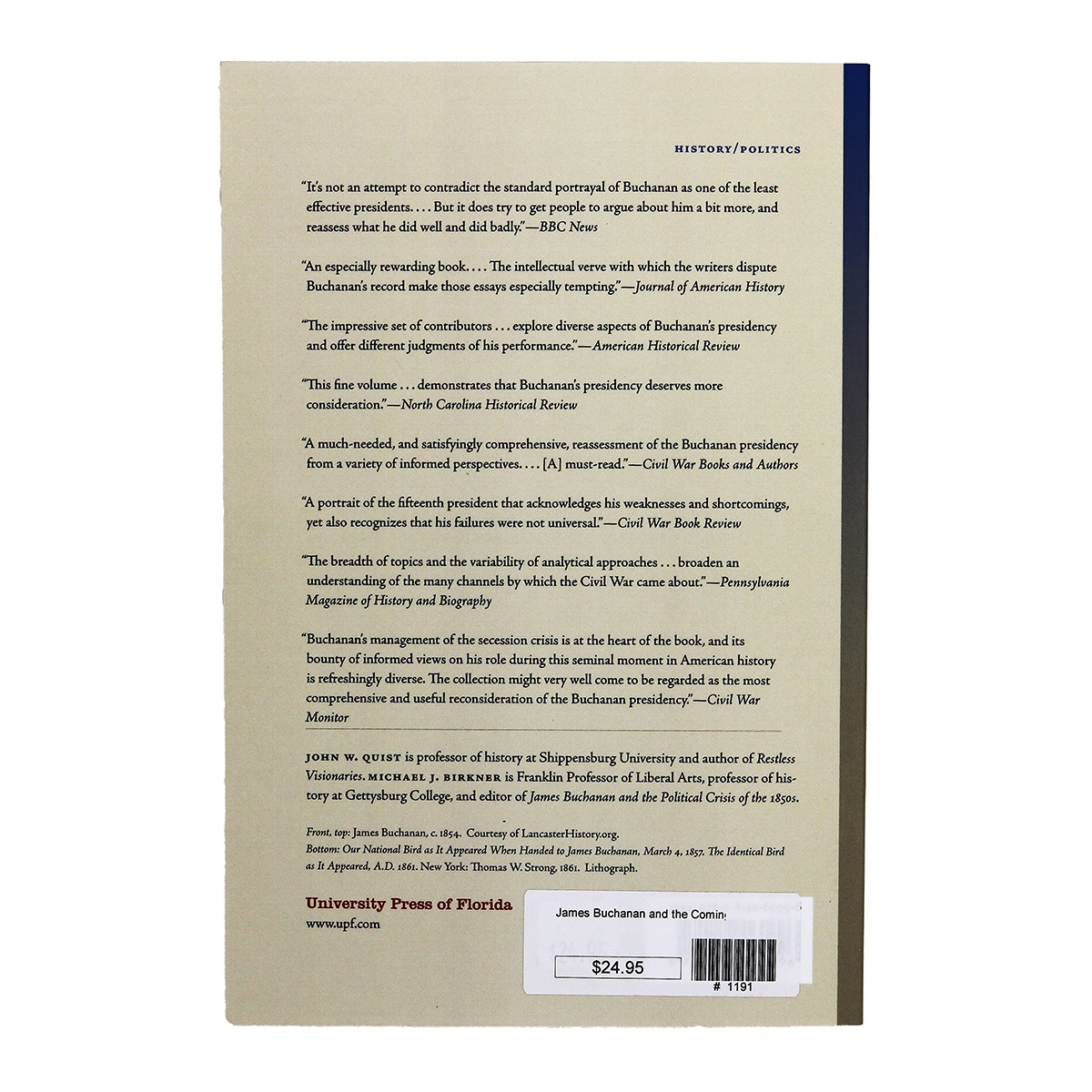Description
Book Synopsis:
In 1856, the violence that swept “Bleeding Kansas” and the brutal beating of Massachusetts Senator Charles Sumner on the floor of the Senate reflected the anger and mistrust of a people divided over slavery. Whispers of disunion now became audible. In the midst of this rising crisis, Americans chose James Buchanan to provide the leadership that might calm sectional tensions and prevent the shattering of the nation. In the opinion of many scholars, Buchanan failed to meet the challenge, and his presidency ended in secession and ultimately civil war.
John W. Quist and Michael J. Birkner have assembled a collection of essays by leading historians who reexamine and challenge that conventional wisdom. This collection revisits standard questions such as Buchanan’s meddling in the Dred Scott case, his role in pressing for Kansas statehood, and his desperate efforts to save the Union in the secession winter of 1860–1861. The authors also freshly examine his conduct of foreign affairs, impetuous dealings with the Mormons, and troubled leadership of a splintering Democratic Party.
Several essays reveal that Buchanan’s governance was more complex and, in some respects, more successful than traditionally believed. Others depict him in less-than-flattering terms. Regardless, the authors offer an opportunity to reconsider. -Amazon.com
Soft cover, 289 page book is a collection of essays by authors John W. Quist and Michael J. Birkner on President James Buchanan and his flaws in the context of the turbulent times in which he lived. Published in 2013 by University Press of Florida.






